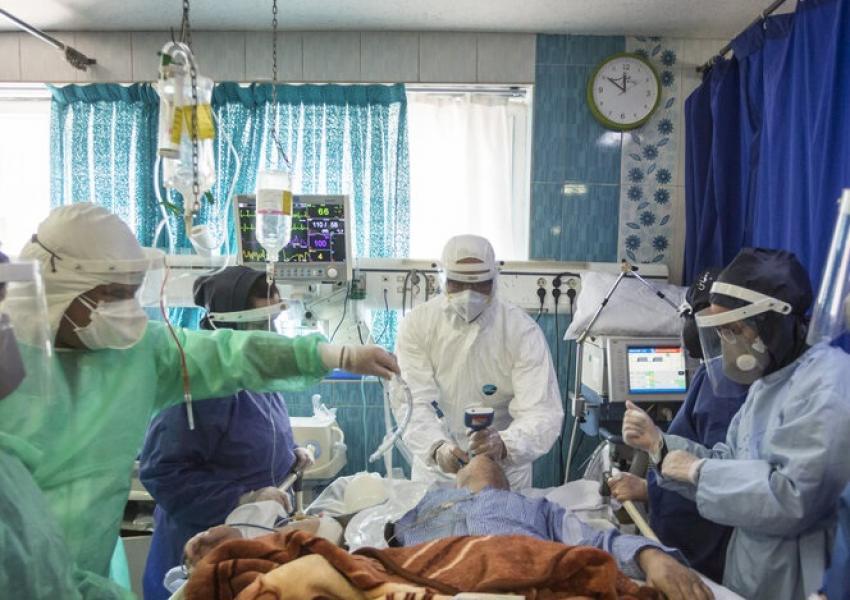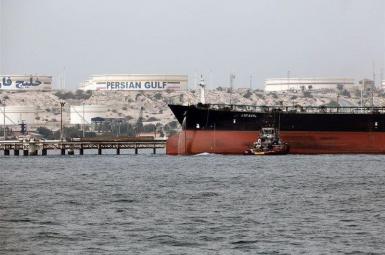
US Sanctions and Healthcare in Iran
Who is responsible for the spread of the Coronavirus and its consequences in Iran? The regime’s officials who lied to the citizens to avoid canceling the anniversary of the Revolution and keep collecting the revenue that Chinese tourists bring Iran and in so doing left people to face a contagious disease, or the US officials who have made it difficult for Iran to manage the spread of the virus through strict sanctions?
The following article deals with this question and similar issues regarding the Coronavirus crisis raised by Iranians in Persian social media.
Is it permitted to sell agricultural commodities, medicine, and medical devices to the Islamic Republic?
Even before the Coronavirus crisis, agricultural commodities, medicine, and medical devices were not and still are not on the list of US sanctions against Iran. But despite the lack of legal restrictions, two reasons make it difficult to import medical devices and medicine into Iran.
First, although agricultural commodities, medicine, and medical devices are not sanctioned, the people who import them might be sanctioned by the US on account of being affiliated with the Revolutionary Guards Corps (IRGC), the Intelligence services, or organizations under the control of the Supreme Leader. Such trade is sanctioned and persecuted by American institutions.
Second, due to lack of economic transparency in Iran and out of prudence, many non-Iranian parties, including sellers, banks, insurers, and shipping companies, who are wary of intense scrutiny and heavy fines by US Department of Treasury, avoid breaking deals, regardless of their profitability, with Iranian importers or buyers. This is because they fear that the Iranian buyer, directly or indirectly, might have a natural or legal partner who is sanctioned by the US.
Based on the above reasons, is the Islamic Republic unable to provide agricultural commodities, medicine, and medical devices for the Iranian people?
Of course not. Iranian importers can easily import agricultural commodities, medicine, and medical devices, provided they demonstrate transparency in their deals. According to a mandate, which can easily be accessed on the website of the US Department of Treasury, it is not necessary to acquire a permit for selling agricultural commodities, medicine, and medical devices to Iran. In other words, agricultural commodities, medicine, and medical devices, and other humanitarian aids can be sold to Iran and the sellers, the insurers and shipping companies can legally sell their services to the Islamic Republic. The US State even offered humanitarian aid to Iran, but the Leader of the regime denied it.
The EU reactivated the trading mechanism it had previously devised to send agricultural commodities, medicine, and medical devices worth 20 million euros to the Islamic Republic. Besides, big Swiss banks, especially Credit Suisse, devised a specific and transparent financial channel to sell agricultural commodities, medicine, and medical devices to the Islamic Republic, with the consent and cooperation of the US Foreign Affairs and Department of Treasury.
Similarly, Iran has sold oil and other products to many countries such as India and China but because of sanctions has still not received the returns. The Islamic Republic can use this credit to buy agricultural commodities, medicine, and medical devices, provided that the natural or legal importer is not on the US blacklist.
Suppose transparency allows agricultural commodities, medicine, and medical devices to be shipped to Iran; does Iran have any income to pay for the imported goods considering the crippling sanctions against its oil, metal, and mineral exports?
It is not clear how much Foreign Exchange Reserve the Islamic Republic owns, but the IMF reports it to be between 40 to 100 billion dollars. So, Iran can spend 10 billion of this money on agricultural commodities, medicine, and medical devices without any restriction from the US.
Iran’s food and medical necessities are determined around 3 to 5 billion dollars which is less than the permitted rate for basic goods, so there is no problem regarding this issue either. Additionally, several countries have volunteered to transfer humanitarian aid to Iran. So, the problem with buying medicine and medical services is not an inability to pay for imported goods.
Moreover, the organizations under the control of the Supreme Leader are worth around 200 billion dollars. The regime authorities could spend
a fraction of these resources on medical necessities, if they wanted to.
So why did the regime authorities did not make use of these possibilities in January 2020 when the Coronavirus first hit Iran?
To answer this question, four hypotheses can be assumed:
First, following the sanctions, the economic and remunerative situation in Iran became so dire that the officials ignored the preventive measures which could contribute to checking the outbreak of the virus; instead, they continued their moneymaking foreign activities. Mahan Airlines, for instance, which was sanctioned by the US because of its ties with the IRGC, did not stop its flights to and from China despite international warnings.
The second hypothesis is related to the ideological identity of the Islamic Republic and its propaganda. The regime could not seek help to combat the contagious disease, while simultaneously encouraging people to attend both the 41st anniversary of the Revolution on February 11 and the Legislative elections on February 21.
Third, companies affiliated with the IRGC and organizations under the control of the Supreme Leader control the medicine market. These companies would lose astronomical profit if medicine were to arrive in Iran in the form of humanitarian aid. Clearly, they would not tolerate such a loss of profit.
The fourth hypothesis is that the regime plans to take advantage of the number of the victims of the Coronavirus to steer international opinion against the US to eventually have the sanctions lifted completely. Therefore, they are not after importing medicine and medical devices and decreasing epidemy and death.
So, what is to be done?
Mixing human and political strategies is challenging. In the political sphere, US sanctions are imposed to prevent Iran from terrorist, atomic, anti-Israel, and anti-American policies. As long as the regime follows its old strategies, not only will the American sanctions persist, but international sanctions might follow. But in the human sphere, medicine and medical devices need to be provided for Iranian people living under challenging conditions.
The regime plans to connect the two spheres in order to get hold of financial resources and pursue its goals. Philanthropists can avoid politics that are incongruous with American sanctions and use international instruments to transfer aid to Iranian people.
Considering past and present experiences, there are four strategies to adopt in order to overcome the Corona crisis.
- announcing a state of emergency in the entire country.
- Leaving the medical sector in charge of managing the crisis and obliging everyone, especially the police force, to respect them.
- Opening the borders to international aid and philanthropist organizations. The government can allow for the entrance of professional and civil medical and medicinal help to Iran until the WHO announces the control of the pandemic; it can postpone its terrorist policies after it has saved its people from disease and death.
- Allowing aid to be gathered and distributed by philanthropist organizations without the involvement and scrutiny of the Islamic Republic. Experience shows that philanthropists and national and international relief societies can get involved directly in countries dealing with a crisis, just as Doctors Without Borders did following the earthquake in Bam (2003) and floods in Lorestan, Khouzestan and Golestan provinces (2019).









